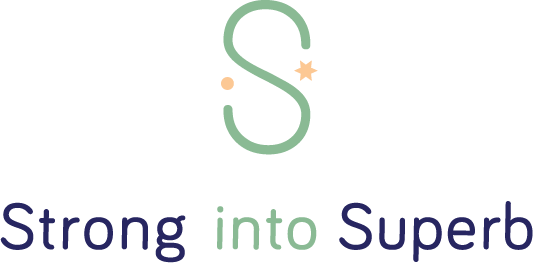Positive Psychology & Wellbeing Science References
Here are the positive psychology and wellbeing science references I have used in the Mentoring through Wellbeing and Beyond offering and a few other interesting articles.
Antoine, P., Dauvier, B., Andreotti, E., & Congard, A. (2018). Individual differences in the effects of a positive psychology intervention: Applied psychology. Personality and Individual Differences, 122, 140-147. https://doi.org/10.1016/j.paid.2017.10.024
Azanedo, C. M., Artola, T., Llorente, S. S., & Alvarado, J. M. (2021). Character strengths predict subjective well-being, psychological well-being, and psychopathological symptoms, over and above functional social support. Frontiers in Psychology. https://doi.org/10.3389/fpsyg.2021.661278
Biswas-Diener, R. (2022). Wellbeing research needs more cultural approaches. International Journal of Wellbeing, 12(4), 20-26. https://doi.org/10.5502/ijw.v12i4.1965
Bolier, L., Haverman, M., Westerhof, G. J., Riper, H., Smit, F., & Bohlmeijer, E. (2013). Positive psychology interventions: A meta-analysis of randomized controlled studies. BMC Public Health, 13(119), 1-20. https://doi.org/10.1186/1471-2458-13-119
Bronfenbrenner, U. (1977). Toward an experimental ecology of human development. American Psychologist, 32(7), 513-531. https://doi.org/http://dx.doi.org/10.1037/0003-066X.32.7.513
Bronfenbrenner, U. (1981). The ecology of human development: Experiments by nature and design. Harvard University Press.
Chia, A., Doyle, K., & Kern, M. L. (2022). Community construals of CSR for happiness: A mixed-method study using natural language. Society and Business Review. https://doi.org/10.1108/sbr-05-2022-0149
Diener, E., Lucas, R. E., & Scollon, C. N. (2006). Beyond the hedonic treadmill: Revising the adaptation theory of well-being. American Psychologist, 61(4), 305-314. https://doi.org/10.1037/0003-066X.61.4.305
Froh, J. J. (2004). The history of positive psychology: Truth be told. NYS Psychologist, 16, 18-20.
Gable, S. L., & Haidt, J. (2005). What (and why) is positive psychology? Review of General Psychology, 9(2), 103-110. https://doi.org/10.1037/1089-2680.9.2.103
Hanson, K. (2019). Positive psychology for overcoming symptoms of depression: A pilot study exploring the efficacy of a positive psychology self-help book versus a CBT self-help book. Behavioural and Cognitive Psychotherapy, 47(1), 95-113. https://doi.org/https://doi.org/10.1017/S1352465818000218
Held, B. S. (2004). The Negative Side of Positive Psychology. Journal of Humanistic Psychology, 44(1), 9-46. https://doi.org/10.1177/0022167803259645
Huppert, F. A., & So, T. T. C. (2013). Flourishing across Europe: Application of a new conceptual framework for defining well-being. Social Indicators Research, 110(3), 837-861. https://doi.org/10.1007/s11205-011-9966-7
Jarden, A., & Roache, A. (2023). What Is Wellbeing? International Journal of Environmental Research and Public Health, 20(6). https://doi.org/10.3390/ijerph20065006
Kern, M. L., Williams, P., Spong, C., Colla, R., Sharma, K., Downie, A., Taylor, J. A., Sharp, S., Siokou, C., & Oades, L. G. (2019). Systems informed positive psychology. The Journal of Positive Psychology, 1-11. https://doi.org/10.1080/17439760.2019.1639799
Keyes, C. L. M. (Ed.). (2013). Mental well-being: International contributions to the study of positive mental health. Springer.
Lomas, T., Cowden, R., & Vanderweele, T. J. (2021). Befriending the butterfly: A multidimensional review of strategies to facilitate happiness and wellbeing. European Journal of Applied Positive Psychology, 5(22), 1-23. https://www.nationalwellbeingservice.org/volumes/volume-5-2021/volume-5-article-22/
Lomas, T., Hefferon, K., & Ivtzan, I. (2015). The LIFE model: A meta-theoretical conceptual map for applied positive psychology. Journal of Happiness Studies, 16(5), 1347-1364. https://doi.org/10.1007/s10902-014-9563-y
Lomas, T., & Ivtzan, I. (2015). Second wave positive psychology: Exploring the positive–negative dialectics of wellbeing. Journal of Happiness Studies, 17(4), 1753-1768. https://doi.org/10.1007/s10902-015-9668-y
Lomas, T., & Vanderweele, T. J. (2021). The complex creation of happiness: Multidimensional conditionality in the drivers of happy people and societies. The Journal of Positive Psychology, 18(1), 15-33. https://doi.org/10.1080/17439760.2021.1991453
Lomas, T., Waters, L., Williams, P., Oades, L. G., & Kern, M. L. (2021). Third wave positive psychology: Broadening towards complexity. The Journal of Positive Psychology, 16(5), 660-674. https://doi.org/10.1080/17439760.2020.1805501
Mead, J., Fisher, Z., & Kemp, A. H. (2021). Moving beyond disciplinary silos towards a transdisciplinary model of wellbeing: An invited review. Frontiers in Psychology, 12, Article 642093. https://doi.org/10.3389/fpsyg.2021.642093
Meiselman, H. L. (2016). Quality of life, well-being and wellness: Measuring subjective health for foods and other products. Food Quality and Preference, 54, 101-109. https://doi.org/10.1016/j.foodqual.2016.05.009
Mental Health Commission of NSW. (2017). Wellbeing language & definitions guide 2017. Mental Health Commission of NSW.
Michaelson, J., Mahony, S., & Schifferes, J. (2012). Measuring well-being. A guide for practitioners. New Economics Foundation.
Niemiec, R. M., & McGrath, R. E. (2019). The power of character strengths: Appreciate and ignite your positive personality. VIA Institute on Character.
Seligman, M. E. P., & Csikszentmihalyi, M. (2000). Positive psychology. An introduction. American Psychologist, 55(1), 5-14. https://doi.org/10.1037//0003-066x.55.1.5
Sin, N. L., & Lyubomirsky, S. (2009). Enhancing well-being and alleviating depressive symptoms with positive psychology interventions: a practice-friendly meta-analysis. Journal of Clinical Psychology, 65(5), 467-487. https://doi.org/10.1002/jclp.20593
Taylor, E. (2001). Positive psychology and humanistic psychology: A reply to Seligman. Journal of Humanistic Psychology, 41(1), 13-29. https://doi.org/10.1177/0022167801411003
Waterman, A. S. (2013). The humanistic psychology-positive psychology divide: Contrasts in philosophical foundations. American Psychologist, 68(3), 124-133. https://doi.org/10.1037/a0032168
Wilber, K. (2005). Toward a comprehensive theory of subtle energies. Explore: The Journal of Science and Healing, 1(4), 252-270. https://doi.org/10.1016/j.explore.2005.04.016
Wong, P. T. P. (2011). Positive psychology 2.0: Towards a balanced interactive model of the good life. Canadian Psychology, 52(2), 69-81. https://doi.org/10.1037//1089-2680.5.4.323
Yilmaz, K. (2013). Comparison of quantitative and qualitative research traditions: Epistemological, theoretical, and methodological differences. European Journal of Education, 48(2), 311-311. https://doi.org/10.1111/ejed.12014
